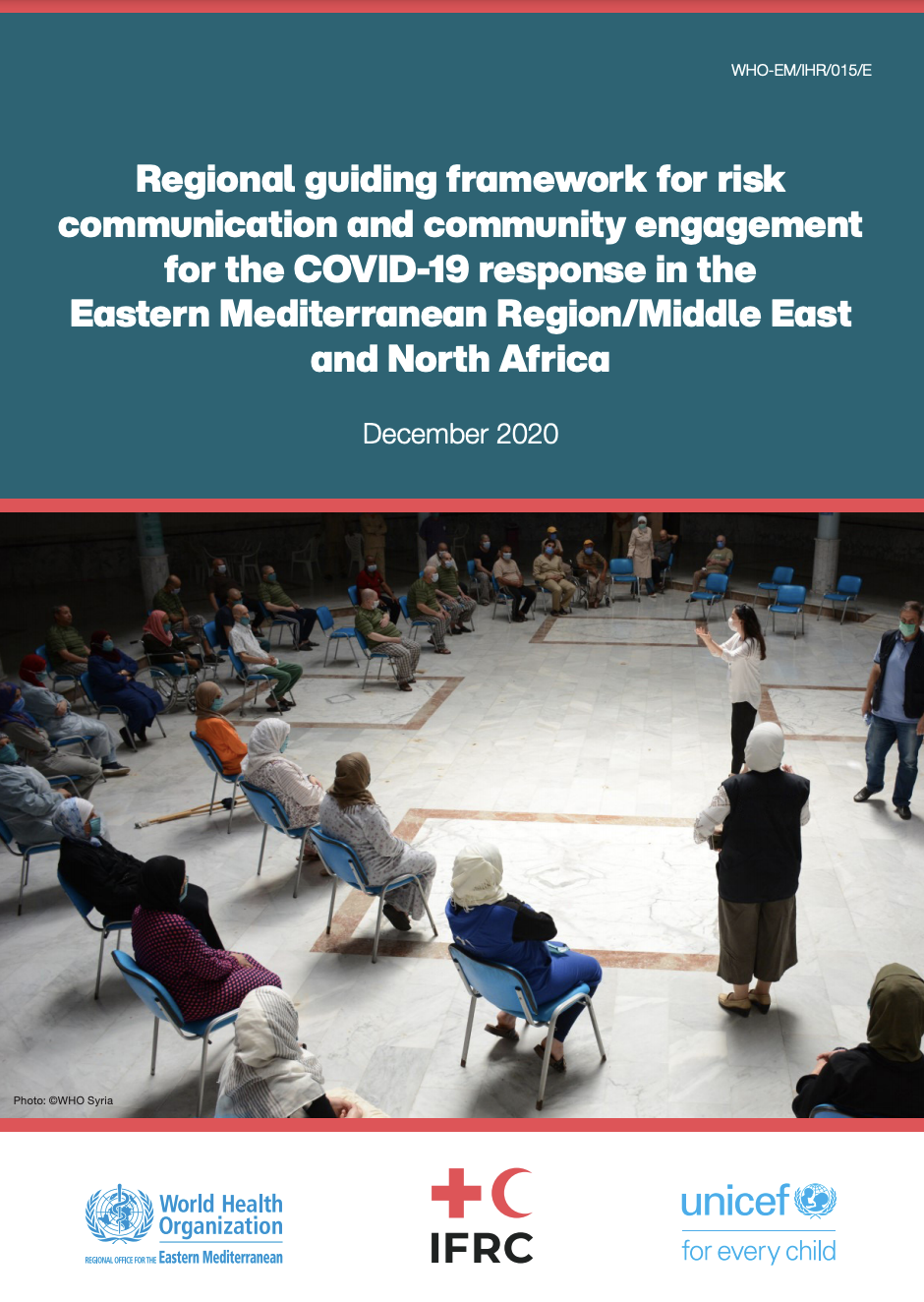Regional guiding RCCE framework for the COVID-19 response in the Eastern Mediterranean Region/Middle East and North Africa
Description
One year into the COVID-19 pandemic, the Eastern Mediterranean Region/Middle East and North Africa is reflecting on the many challenges that have been endured and the daunting effort still required individually and collectively. A key lesson is that it is absolutely critical to engage communities and ensure that they trust public health advice.
Risk communication and community engagement (RCCE) efforts recognize that communities can be active agents of change. With the right support, they are well placed to assess risk and identify locally appropriate and sustainable solutions. While “informing” or “consulting” communities has long been a routine part of health programmes, RCCE entails genuine engagement with communities and building local capacity and ownership for the long term.
This Regional RCCE Guiding Framework is a product of collaboration by the Regional RCCE Interagency Working Group, co-chaired by the World Health Organization, UNICEF and the International Federation of Red Cross and Red Crescent Societies (IFRC). The framework emphasises the need to localize efforts, to move beyond the idea of a single national response and towards coordinating multiple simultaneous responses that reflect a deeper understanding of the needs of different parts of each community, in collaboration with communities themselves.
Throughout the pandemic, a diverse range of knowledge, skills and other resources has been mobilized within communities, the private sector, different levels of government, and among international and local cooperating partners. Supporting critical connections between communities and public health structures and demanding more sustainable and institutionalized approaches is more important than ever as we strive to capitalize on the hardwon gains already made. Country teams are encouraged to use this Regional RCCE Guiding Framework to go beyond traditional approaches and join hands with communities as codesigners of a COVID-19-safe future.
Additional languages

DETAILS
Publication
Authors
Emergency
Language
Region
Keywords

